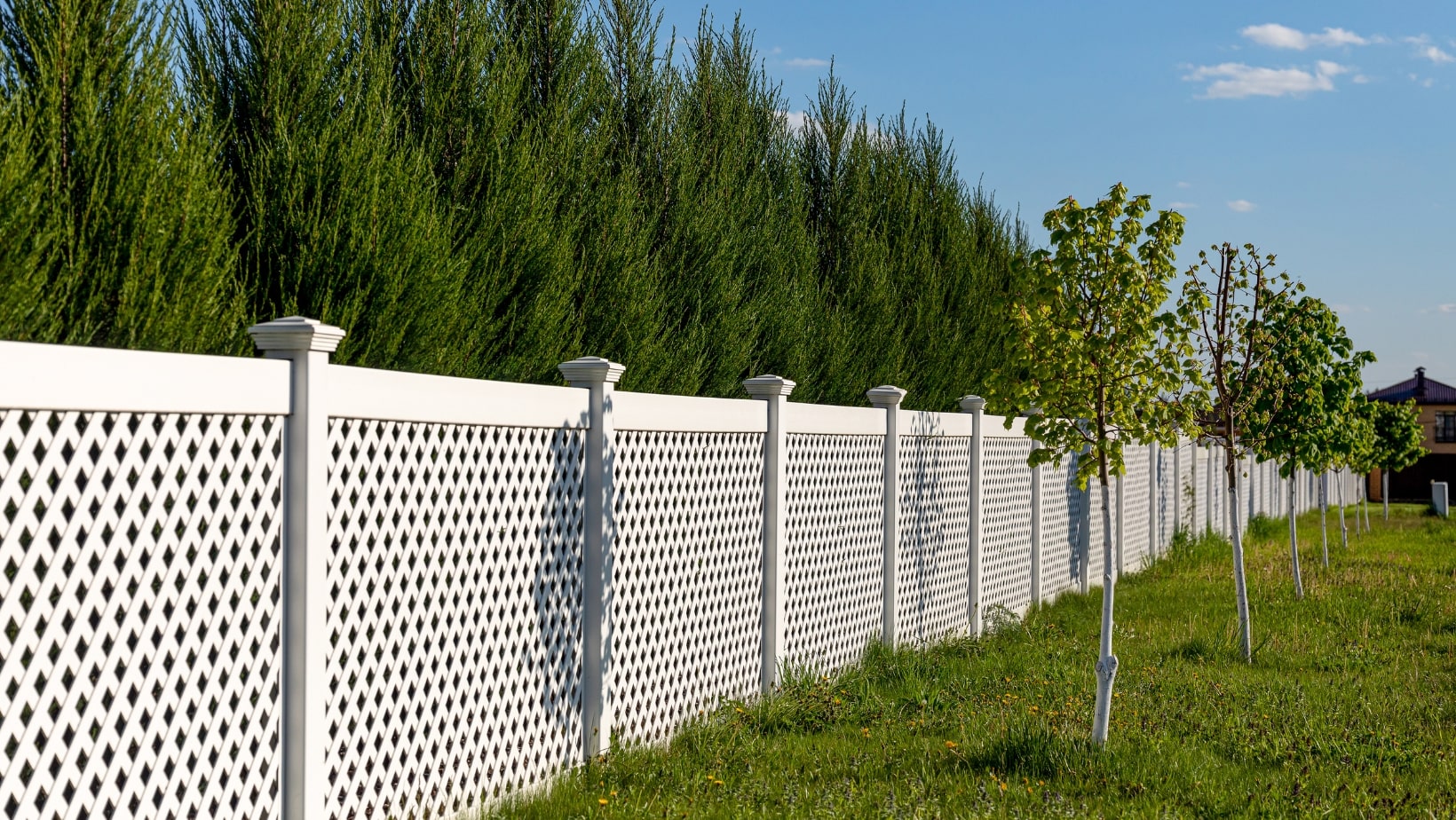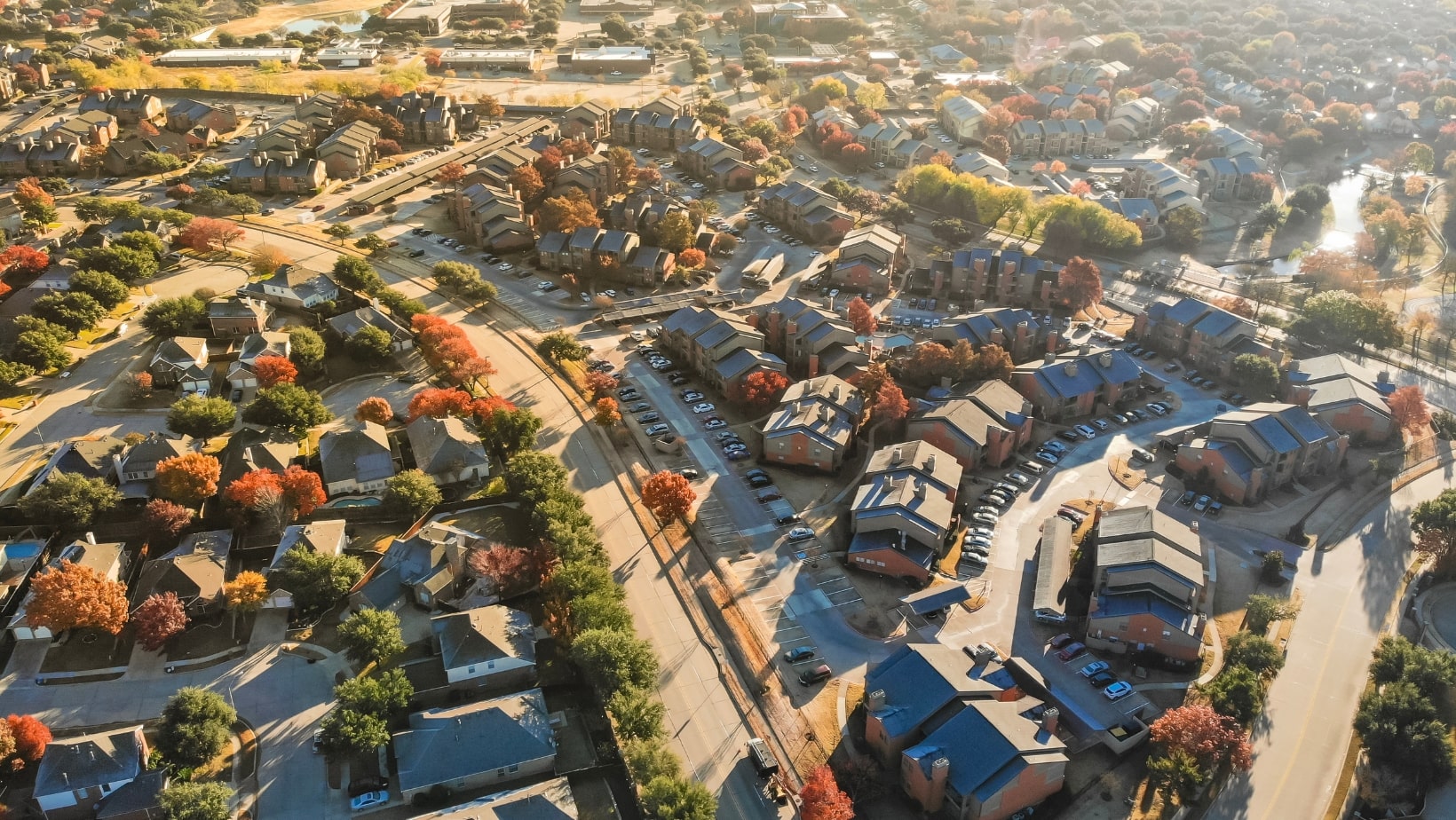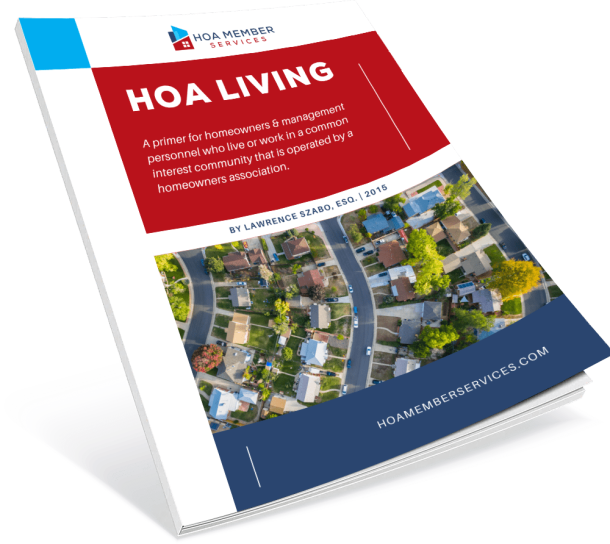Ever walked through your neighborhood and wondered, ‘Who makes sure everything stays as it should when there’s no HOA to keep things in check?’ You’re not alone.
We often assume that deed restrictions — the rules set by the original developer or a previous owner — are managed by the HOA, but what happens when your community doesn’t have one?
Here’s the deal: even without an HOA, those deed restrictions still exist, and someone has to enforce them. But who? The short answer: it could be you or your neighbors. Yep, in many states, homeowners themselves can become the enforcers.
Sounds complicated? Don’t worry; we’ll explain how it all works. If you don’t have an HOA but still care about keeping your neighborhood’s charm intact (or just want to avoid a clash over someone’s new project), this is something you need to know.
So, let’s uncover the ways deed restrictions can be enforced, even when there’s no HOA.

Understanding Deed Restrictions
What Are Deed Restrictions?
Deed restrictions, otherwise known as restrictive covenants or CC&Rs, are a set of invisible guidelines that are attached to a piece of property. These rules don’t go away when the property changes hands — they’re tied to the land itself.
Most of the time, these restrictions are put in place by the original developer or a past owner of the property to control what happens with the land long after they’ve sold it.
The key thing to remember is that these restrictions are legally binding. Once they’re written into the property’s title or deed, they become part of the package when you buy the property.
That means when you sign for your home, you’re also signing onto these restrictions because they’re woven into the property’s deed like a hidden promise. So, as the new owner, you agree to abide by these provisions whether you are aware of them or not.
But what do they restrict? Pretty much anything that affects how the property can be used.
Common Examples of Deed Restrictions
Deed restrictions can limit the types of homes built in a subdivision by requiring them to follow a specific architectural style. You might be surprised at how specific these rules can get.
A deed restriction can dictate everything from your home’s exterior color palette to the size and style of any additions. For example, it can be as explicit as mandating what color you’re allowed to paint your house or what kind of landscaping is permitted.
It can even say you can’t build a tall fence in your front yard or prevent you from parking your RV or boat in the driveway.
Deed restrictions can also restrict certain uses of the land that might negatively impact the neighborhood, like using residential areas for commercial purposes.
So, if you’ve been wanting to turn your home into a business, you’ve got to keep an eye on the deed restrictions (no turning that spare bedroom into a bakery!).

Why Do They Exist?
You might be wondering why developers bother to create these restrictions in the first place. Well, they’re put in place to ensure that a neighborhood keeps its charm or doesn’t turn into a patchwork of mismatched homes.
Developers often want to ensure that all the homes in a community look cohesive. Picture a neighborhood where everything looks uniform and tidy. There are rows of similarly styled houses, all neatly landscaped, that complement each other.
This harmonious feel can help maintain property values and a specific community vibe.
Deed Restrictions vs. HOA
But wait, how is this different from a homeowners association (HOA)? While HOAs are usually run by a committee of residents who enforce HOA rules and collect dues, deed restrictions don’t need a watchdog.
They are just written into the property itself and stand on their own, independent of any community management body.
So, who’s responsible for making sure the limitations are followed? Let’s find out.
How Deed Restrictions Are Usually Enforced
When There is an HOA:
When there’s an HOA in place, enforcing CC&Rs (Covenants, Conditions & Restrictions) is pretty straightforward. The HOA management acts like the neighborhood watchdog, ensuring everyone in the community plays by these rules.
They keep a check on all sorts of guidelines, whether it’s about landscaping, paint colors, or even how long your garbage cans can stay at the curb.
The homeowners’ associations (HOAs) have a wide range of tools at their disposal to do this. They can issue fines for violations, file liens against your property if things get serious, and even make formal complaints if someone continually ignores the guidelines.
If you’ve ever been part of a neighborhood with an HOA, you might already know how this goes:
- Fines: One of the most common actions HOAs take to handle violations is to levy fines. Let’s say you build a fence that doesn’t meet the community standards or paint your house an unapproved color. The HOA might give you a warning, but if you don’t fix it, a fine can be imposed, and those can add up quickly.
- Liens: If someone continues to ignore the fines and still doesn’t comply, the HOA can step it up by placing a lien on the property. This can get serious because it means the homeowner won’t be able to put their house on sale or refinance it until the problem is resolved and the lien is lifted.
- Formal Complaints: In some cases, HOAs can file formal complaints or even take legal action if a homeowner keeps breaking the rules or refuses to cooperate. This is usually a last resort, but it’s definitely something within the HOA’s power.

When There is No HOA:
Now, without an HOA, things look very different. When there is no governing body, deed restrictions often feel more like friendly suggestions than hard-and-fast rules.
The absence of enforcement mechanisms like fines or the threat of legal proceedings leads to a more hands-off approach. Neighborhoods often rely on a kind of unspoken honor system, where everyone hopes their neighbors will just do the right thing.
Because there’s no central authority to keep everyone in line, it’s up to individual property owners to take matters into their own hands. They can either enforce the restrictions themselves or turn to local authorities.
The result? A much more relaxed, and sometimes chaotic, enforcement environment where the rules are still there, but no one is officially responsible for making sure they’re followed.
Who Can Enforce Deed Restrictions Without an HOA?
It’s easy to assume that without a homeowner’s association, deed restrictions are nothing more than forgotten lines on paper. But that’s far from the truth. In fact, sometimes enforcement can get personal — very personal.
Here’s a look at who might step in when no formal homeowners association is there to play referee:
1. Neighbors
Without an HOA, the responsibility falls squarely on the shoulders of individual homeowners. If someone’s breaking the rules, it’s up to their neighbors to notice and then do something about it.
That’s right; your friendly (or not-so-friendly) neighbors actually have the legal standing to enforce deed restrictions. If they feel like you’re doing something that violates the agreement, like putting up a neon-colored shed or wild front lawn, they can take action (or vice versa).
That means hiring a lawyer, filing a lawsuit, and following through in court if necessary. It’s not always a quick or easy process and can lead to anything from polite conversations to full-on courtroom battles, depending on how strongly they (or you) feel about the violation.
2. Original Developers
Now, this one might sound unusual, but it happens. While most developers move on once the development project is done, some stay tied to the property long after, ensuring those original rules are respected.
Yes, sometimes, the original developers who built the neighborhood still retain some rights to enforce the deed restrictions. It’s like having a silent overseer pop back into the picture when things go off track.
It’s rare, but if the developers still have an interest in the property, they might want to make sure their vision stays intact. In such cases, they could step in if someone violates a key restriction they set up when first laying out the community plan.
3. Local Governments
This is where things get a little more indirect but still important. Local governments typically don’t enforce deed restrictions outright — they’re not usually in the business of micromanaging neighborhood agreements.
However, they might be keeping things in check in their own way. How? Well, some deed restrictions could align pretty closely with zoning laws or other municipal codes.
For example, if a deed restriction requires a certain setback for buildings and that overlaps with local zoning regulations, the local government might end up implementing that rule without even realizing it.
So, even though they’re not specifically looking out for deed restrictions, if the violation also goes against local zoning regulations, it’s possible the local government will take action. It’s like an invisible safety net that can kick in when certain restrictions line up.
Challenges of Enforcing Deed Restrictions Without an HOA
While it’s possible to enforce deed restrictions when there’s no central authority in place, like an HOA, it doesn’t come without challenges. Here are a few reasons things can get messy:
1. Legal Complications
Enforcing a deed restriction often means a court case, and let’s be honest, going to court isn’t something most people are eager to do.
Legal processes are expensive and time-consuming, not to mention stressful. Most homeowners don’t have the time, resources, or energy to get caught up in legal disputes over things like property lines or paint colors.
So, even if a deed restriction is being violated, the reality is that not everyone is willing to pay for a court battle to fix the problem, which means some restrictions may never get enforced.

2. Community Conflict
Now, let’s say you do decide to address the issue. You knock on your neighbor’s door and politely explain that their new garage addition violates a deed restriction. But guess what? What you think is a friendly heads-up quickly turns into a tense conversation.
That’s right! What may start as a simple disagreement — say, over someone parking boats in their driveway or building an addition too close to a property line — can turn into a full-blown personal conflict.
And suddenly, instead of calmly resolving a property issue, you’re dealing with angry neighbors and strained relationships.
So, without a neutral body like an HOA, deed restriction enforcement can lead to disputes between neighbors, which can get heated quickly and cause long-term resentment.
3. Lack of Awareness
Here’s the thing: Sometimes, your neighbor might not even know they are breaking a rule. A lot of homeowners aren’t even aware that deed restrictions exist until they run into a problem.
When people buy homes, they’re often bombarded with paperwork. Deed restrictions can get lost in the fine print, buried somewhere in that massive stack of documents.
Unless you’re the type to meticulously read every single detail (and let’s be realistic, most of us aren’t), you might not realize that there are rules governing what you can or can’t do with your property.
Then, out of nowhere, a neighbor complains that you are violating a restriction, and you’re caught off guard. Without an HOA to educate and remind homeowners about these restrictions, many people go about their lives completely unaware until it’s too late.
4. Inconsistent Enforcement
One of the most significant issues with not having an HOA is that there’s no consistency regarding deed restriction enforcement. It’s up to the residents to speak up or let things slide which makes it a bit of a gamble, really.
Some neighbors will step up, and others won’t, leading to an unpredictable environment where some restrictions are followed to the letter while others are casually ignored. This inconsistency can lead to a lot of frustration.
Some people may feel like they’re being held to a higher standard than others. Why should you follow the rules if your neighbor is clearly getting away with breaking them? And who decides which restrictions are worth upholding?
So, it often comes down to who is willing to speak up and take action. If no one complains, violations go unchecked. But if someone raises their hand, it can create tension and resentment, especially if enforcement feels arbitrary.

What Happens When Deed Restrictions Are Violated?
Let’s suppose you’ve finally finished a home improvement project that you’ve been dreaming about. Maybe it’s a new shed in the backyard, or you’ve repainted your house a bold color that makes it stand out.
You’re feeling good — until one day, there’s a knock at the door. It’s your neighbor, and they have an awkward smile on their face. “Hey, I hate to be the one to bring this up, but… I think you might have violated a deed restriction.”
So, what happens if you break a deed restriction?
Well, it usually starts off like this — innocent enough. A casual conversation with your neighbor, who might not even want to be in the position of reminding you about the rules.
But if you don’t take action, that friendly chat could quickly turn into something more formal. Neighbors who are serious about deed restrictions won’t let the issue slide forever.
Soon, you might find a letter in your mailbox, either from a lawyer or a group of neighbors who are all feeling affected by the violation. At this point, you can still work things out.
In fact, many disputes over deed restrictions are resolved right here, with a conversation, an apology, and maybe a slight adjustment to whatever broke the rule in the first place. But sometimes, homeowners dig in their heels.
Maybe they feel the restriction is outdated or unfair. Or maybe, they just don’t see why their neighbors should care so much. Whatever the reason, if no agreement is reached, things can escalate even further, straight to court.
Legal Consequences
Once you’re in the courtroom, the situation becomes much more severe as the jury doesn’t mess around. If a judge finds that you’ve violated a deed restriction, the first thing they’ll usually do is give you a court order to fix the problem.
This could mean undoing whatever you’ve done, whether it’s tearing down that new shed you just built or repainting your home again to a more neutral color.
Sometimes, the court might even award monetary damages to the neighbors who brought the case forward, especially if they can prove that the violation of the restriction affected the value of their property or their quality of life.
But fortunately, in most cases, it never gets that far. Many disputes are resolved long before anyone sets foot in a courtroom. Most people, when faced with the possibility of legal action, realize it’s easier (and much cheaper) to just comply with the deed restriction rather than fight it.
After all, a legal battle with your neighbors isn’t exactly anyone’s idea of a good time.

The Bottom Line
So, long story short, deed restrictions don’t just vanish into thin air because there’s no functioning HOA involved. Without an official board, the responsibility falls into the hands of the current property owners themselves.
That means more personal involvement and a bit more effort than if an HOA were involved. However, with cooperation and communication, preserving your neighborhood’s character is absolutely possible. The key is working together as a community to ensure everyone stays on the same page.
Sure, it can be overwhelming and even costly to go at it alone, but you don’t have to. Whether you’re thinking of forming an HOA to make things easier or simply want guidance on how to maintain harmony in your community, we’re here to help.
Our membership plans connect you with an expert attorney and provide you access to valuable resources and tools that make managing your neighborhood a breeze.
So, don’t wait for issues to pile up — check out our plans today and find out how you can protect your property and keep your community running smoothly and stress-free!


